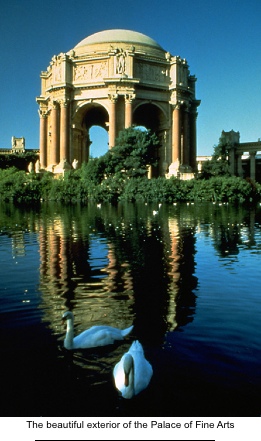 | Central Park Lake. But, alas, this suggestion to us has also been unrealized largely because a determined band of vandals, in the early morning hours of the weekends, push over everything in sight - even 1,000 pound concrete statues. Although I would still like to be able to take that part of his advice, we have not been able to afford to keep the exterior area secure. Dr. Parr seemed to me such a wise, thoughtful and encouraging person that I feel very humble at being presented with the same award that the AAM presented to him. I cannot envision myself as living up to his stature. During his visit to San Francisco, he told me a fine story about his youth. He lived in a small town which, I believe, was outside of Stockholm. At the age of 10 or 12 he would be asked by his parents to go into the city to buy a variety of supplies for the family. He would ride the train, get off at the industrial edge of the city, go by factories and then wander around one kind of market or another encountering all manner of people. He remembered these expeditions as being full of adventure and richness as well as creating for him a sense of self-reliance. He compared his experiences with those of suburban children, who nowadays must be chauffeured everywhere, and who have neither responsibilities for long-distance wandering on behalf of their households nor intriguing opportunities for exploring on their own. Even city children are probably now much less free to wander around than they were fifty years ago. For the most part, both children and adults have few opportunities for exploration. They usually know ahead of time where they are going and why they are going there. They rarely just wander on the off-chance that they might find something interesting. Television has amplified this lack of interest in wandering; when children are bored they don't go out trying to find something, they don't wander around, they don't look for new things, they merely turn a knob and watch the tube. As a consequence, the whole tradition of exploration is being lost for entire generations. | ||
| Perception has provided a starting point for us. But from that start we have been able to go as far as we wish in both the sciences and the arts. Perception is basic, of course, to both. Dr. Parr was entranced by the Palace of Fine Arts building, and he was full of ideas for things that we could do within it. He felt we should not put up any walls. We were hoping to build a theater within the building, but he said that we should attach it to the outer curve of the building and should not obscure the wonderful 1000 foot long, 120 degree arc of space within the building. Unfortunately, we were unable to change the outside of the building to accommodate his suggestion. He remarked that it would be fine if the museums had more exhibits outside rather than inside. For example, he suggested that the whale in the American Museum hall should instead be in | |||